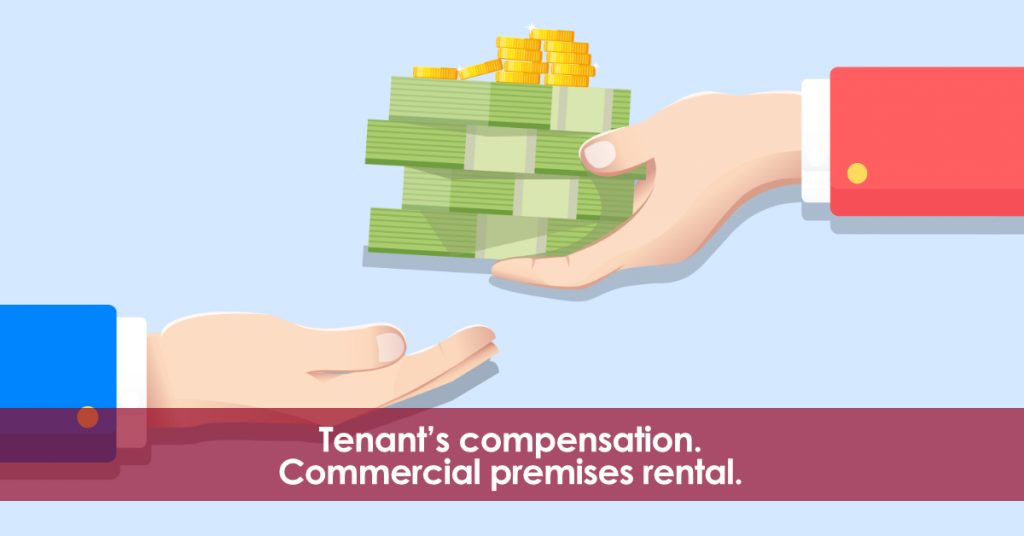In previous articles we have analysed in depth the most important aspects of the housing leases. The possibility for the landlord to recover the property for his/her own or his/her family members’ use. Also, the obligatory Energy Efficiency Certificate. The bond. The recent modification of the Housing Law. Etc. This week we want to focus on rental for use other than housing (commercial premises rental). Its main differences with respect to the residential lease. And especially, the compensation for the tenant foreseen in art. 34 of the Urban Lease Act.
Leasing for use other than housing: regulation and main differences.
The lease of commercial premises is regulated in Title III of the Urban Leases Act (L.A.U.) and presents important differences with respect to the lease of a dwelling.
Deposit.
In the case of a landlord, the compulsory deposit is 1 month’s rent. In the case of a landlord for a use other than a dwelling, 2 monthly payments are obligatory.
Subletting.
When the object of the rental is a dwelling, the landlord must authorise subletting. And the subletting can only be partial. However, in business premises, subletting (total or partial) is possible without the landlord’s authorisation. In addition, the landlord is entitled to raise the rent by 10% (if the subletting is partial) or 20% (if it is total).
Duration.
In residential leases, there is a minimum duration of 5 or 7 years (depending on whether the landlord is a natural person or a legal entity). For commercial leases, there is no minimum duration.
Compensation for the tenant in the event of non-renewal of the contract.
Another of the main differences between renting a house and renting a commercial premises is the compensation to tenant foreseen in art. 34 of the Urban Lease Act. This compensation only applies when the contract is terminated due to the expiration of the term established in it. In order to be able to claim this compensation, the following requirements must be met:
1. The tenants must not have expressly waived this indemnity when he/she signed the lease contract.
2. The tenant must have carried out a commercial activity or business in the rented premises during the last five years.
3. Four months before the end of the lease, the tenant must have informed the landlord of his wish to continue the lease at a market price.
How is this compensation calculated?
In accordance with art. 34 of the Urban Lease Act, the compensation for the tenant can be calculated according to two scenarios:
– In the first 6 months after the termination of the contract, the tenant settles in other premises, in the same municipality, and engages in the same activity that he/she had been carrying out until now. In this case, the compensation will include the relocation expenses and the damages derived from the loss of clientele.
– The tenant opens another business, in the 6 months following the termination of the contract but dedicated to a different activity (or he/she does not start any activity). If the landlord or a third party starts to develop the same (or similar) activity in the premises of the previous tenant; the compensation will be equivalent to 1 month per year of the contract (with a maximum of 18 monthly payments).
Conclusions.
In summary, when the landlord (or a third party) can take advantage of the clientele of the previous tenant, the law aims to counterweigh the tenant economically with this compensation. If you have signed (or are going to sign) a lease for use other than as a dwelling (commercial premises rental), do not hesitate to contact us. We will study your case and offer you expert advice on the subject.
The information provided in this article is not intended to be legal advice, but merely conveys information relating to legal issues.
Carlos Baos (Lawyer)
White & Baos.
Tel: +34 966 426 185
E-mail: info@white-baos.com
White & Baos 2023 – All Rights Reserved.
